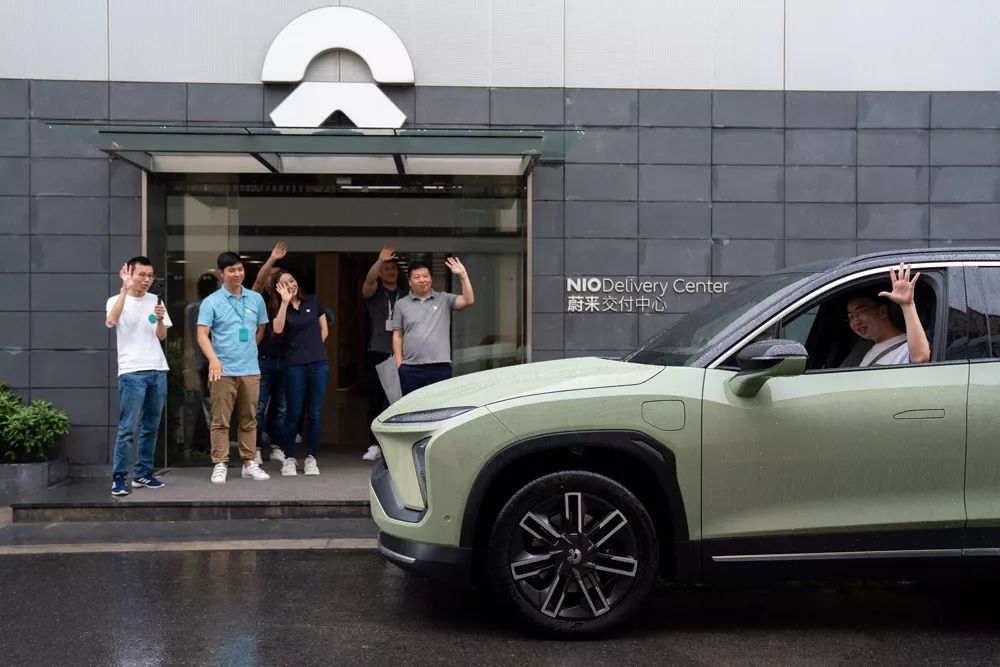It will be interesting to see who will get to the much tougher 100,000-unit production milestone first, if they will ever get there.
June 18 turned out to be a very lucky day for both Chinese smart EV startups NIO and Xpeng Motors.
NIO began delivering its much-awaited second production model, the ES6, to first customers in Beijing, Shanghai and Guangzhou, while Xpeng Motors produced its 10,000th G3 smart electric SUV at its smart manufacturing facility in Zhengzhou operated by manufacturing partner Haima Auto.
Both events are huge psychological milestones for the two companies as they progress toward their respective next phases of growth while weathering growing pains, confronting the slowdown of the overall market and bracing for dropping subsidies, which will fall off a cliff after June 25 based on a new scheme announced earlier in the year.

While NIO leads the race and Xpeng Motors plays catch up as far as deliveries are concerned (NIO had delivered close to 18,000 ES8s by the end of May since deliveries began on June 28, 2018, Xpeng Motors has delivered about 6,000 units since deliveries began in March 2019), the two companies are facing completely different trajectories on other fronts.
Three recent incidents involving ES8 catching on fire within a two-month timeframe from April to June have jolted potential customer confidence and interest in the model and company, and it has yet to announce exact causes for two of the incidents as investigations continue. Coupled with weakening sales since the beginning of the year, NIO has taken a beating as far as its stock price is concerned, falling by more than 60 percent since its IPO in September 2018. Now as the ES6 deliveries begin, investors and shareholders will be looking to see whether NIO can actually deliver on its expectation that the ES6 addresses a much bigger market, and therefore, result in higher delivery volumes. Anything below what the ES8 had done in terms of delivery performance in its first six months on the market probably will not be acceptable.
Xpeng Motors, currently No. 3 in the ranking of deliveries in the first five months of 2019 among leading Chinese smart EV startups behind NIO and WM Motor, claims that it is the fastest to reach the 10,000-unit production milestone, having achieved the feat just 188 days after the G3 was launched last December. Chairman & CEO He Xiaopeng is adopting what he calls a "slow is fast" philosophy as key for Chinese smart EV startups to attain a firm footing in the market and among consumers, emphasizing that the delay in large quantity delivery of the G3 in the long run is actually positive for the company.
"Our next core challenges are ramping up deliveries and optimizing cost," he said in a personal WeChat post.
It, and for any other startup for that matter, has to do it consistently long into the future. The "slow is fast" philosophy need to be assessed from a much longer timeframe, not just 188 days but perhaps 1,880 days.
While Xpeng Motors is expected to produce its next model, the P7 sedan, at its own factory in Zhaoqing, Guangdong Province, NIO will be "stuck" with JAC as its manufacturing partner. The two companies also face completely different customer bases as the G3 sells for at least a third the price of the ES6.
It will be interesting to see who will get to the much tougher 100,000-unit production milestone first, if they will ever get there.
This article appeared in the July 2019 (Vol.14, No.7) issue of China Automotive Review (CAR), our monthly publication in English exclusively focused on the Chinese auto industry. If you would like to read this information-packed monthly report on the Chinese automotive market (in PDF format on a paid basis), please send your subscription to us at: sub@cbuauto.com.cn




